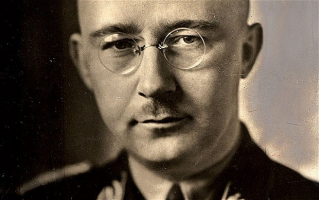Top 7 Interesting Facts about Steven Spielberg
Film producer, screenwriter, and director Steven Allan Spielberg. He started working in Hollywood during the New Hollywood era, and he is currently the most ... read more...lucrative director of all time. He founded Amblin Entertainment, a production firm, along with DreamWorks Pictures. DreamWorks Pictures was formed in 1994 by Spielberg, Jeffrey Katzenberg, and David Geffen. This came after Jurassic Park became the first film to earn a billion dollars and the one with the biggest lifetime box office earnings. Let's examine some interesting facts about Steven Spielberg.
-
There was a period when one esteemed academic institution failed to recognize Spielberg's talent or promise. The prospective director submitted an application to the University of Southern California's film program but was turned down a staggering three times which is one of the interesting facts about Steven Spielberg. Following his high school graduation, Spielberg relocated to Los Angeles. His low grades led to three rejections from the University of Southern California Film School. He had no desire to pursue a career in academia and solely wanted to be a filmmaker.
Spielberg later submitted an application to California State University and was approved. Here, he joined the Theta Chi Fraternity as a brother. Later, when he was given the chance to work as an intern at Universal Television in 1968, he left California State University. Spielberg received an honorary degree from the University of Southern California Film School in 1994. He joined the university's board of trustees in 1996. Spielberg continued to make light of the fact that he eventually had to pay his way in.
The movie's impression on Sidney Sheinberg, vice president of Universal at the time, led to his making Spielberg an offer for a seven-year directing contract. Soon after, Spielberg quit school to focus solely on his career as a director. Knowing the value of education, he returned to CSULB in 2002 to finish his undergraduate studies.
Along with filmmaker George Lucas, Spielberg was recognized in 2009 with a building named in his honor at the University of Southern's newly constructed School of Cinematic Arts. An interesting turn in an uplifting tale.
Now that Spielberg has established a profession that is unmatched by many, it is clear that his interest in life goes beyond simply attending one of Hollywood's best film schools. He served as an inspiration to a whole new generation of filmmakers who now pursue their passions without the approval of industry insiders.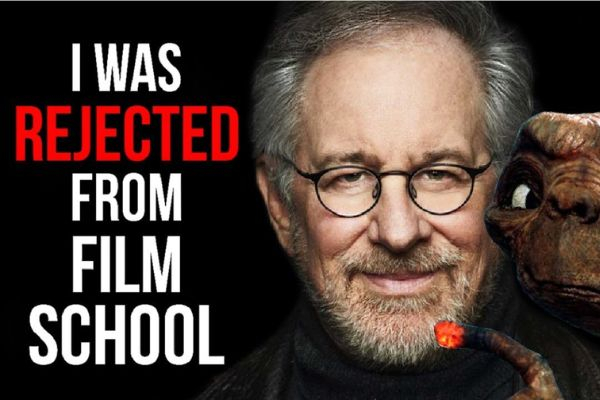
Photo: Medium Video: MrHecker -
When Spielberg was given the chance to work as an intern at Universal Television, he decided to leave California State University. Spielberg was given permission to write and direct Amblin, a short film intended for theatrical release, by Sid Sheinberg, Head of Universal Television.
Steven Spielberg moved in and opened up shop before beginning Amblin. A friend who was also attempting to earn his big break in the business gave the film a $15,000 budget. Amblin exhibited at the Atlanta Film Festival in 1969 and won multiple honors at film festivals. The Television division afterward agreed to a 7-year arrangement with Steven Spielberg. After helming a variety of TV episodes in just 4 years, he filmed the suspenseful made-for-TV movie Duel, which won praise from both critics and viewers and was ultimately released in theaters. Steven was at that time the youngest filmmaker to ever sign a contract of this kind with a major Hollywood studio. Following its success at film festivals, Spielberg's production firm, Amblin Entertainment, adopted the moniker Amblin.
Two years after Jaws' commercial triumph, Steven Spielberg released his second movie, Close Encounters of the Third Kind, which was nominated for an Academy Award for best director. However, not every Steven Spielberg movie has been well received, as evidenced by the miserably unsuccessful 1941, his debut comedy (released in 1979). This setback did not deter him, either, and the following time he teamed up with a friend of his named George Lucas. Together, Steven Spielberg and George Lucas created Raiders of the Lost Arc, an action-adventure film based on serials they both adored as children. Steven Spielberg received a second Oscar nomination for best director for the movie.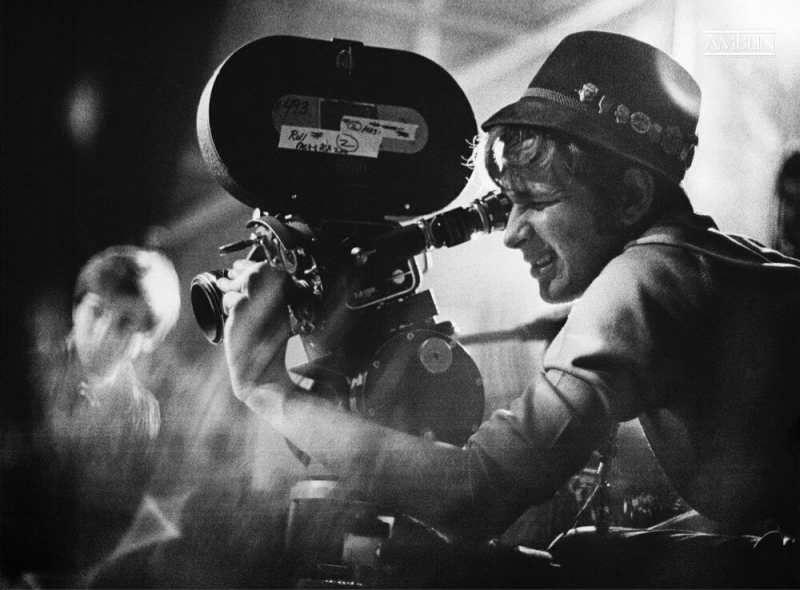
Photo: Celpox 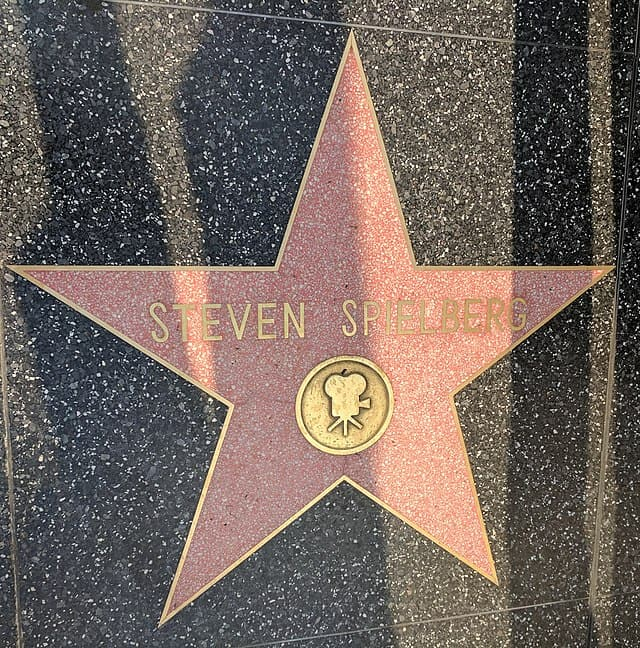
Photo: Discover Walks Top 10 Surprising Fa -
The scene in which Elliott and E.T. soar past the moon in silhouette is one of Spielberg's most wonderful memorable moments and images, also one of the interesting facts about Steven Spielberg. When you realize that practically everything we see was captured on video, it's even more remarkable. Finding the ideal location for filming required weeks of scouting by the effects team, Industrial Light and Magic. To determine the ideal moment for a full moon to sit low amid the trees in that location, they consulted maps and astrological charts. While Elliott and E.T. were scale models, everything else is real and has been shown in movies before.
A.I. Artificial Intelligence, Minority Report, Catch Me If You Can, The Terminal, War of the Worlds, and Munich are just a few of the Spielberg movies from the first half of the 2000s that make use of this paradigm, though not all of them do so to the same degree. Each of these performances uses a "matricial" symbolism that combines in-utero existence with technology, depending on the genre to which it belongs, to redefine the subjectivity of a man and make him better equipped to deal with the "problems" of his day.
In a filmmaking career that has lived on the cutting edge of visual effects trickery, it may be the least technologically advanced moment. All of his full-length movies have featured some sort of special effect, from barnstorming showstoppers like the across the moon bike sequence in E.T. to grace notes like the flash of light as the Nagasaki bomb explodes in Empire Of The Sun, the sped-up cloud effects above the mailbox in The Color Purple, and the digital vistas of New Hampton in Amistad that subtly enhance a story or imperceptibly create a world. No one has used the current state of the art with more flair and dexterity than Spielberg if George Lucas didn't create it.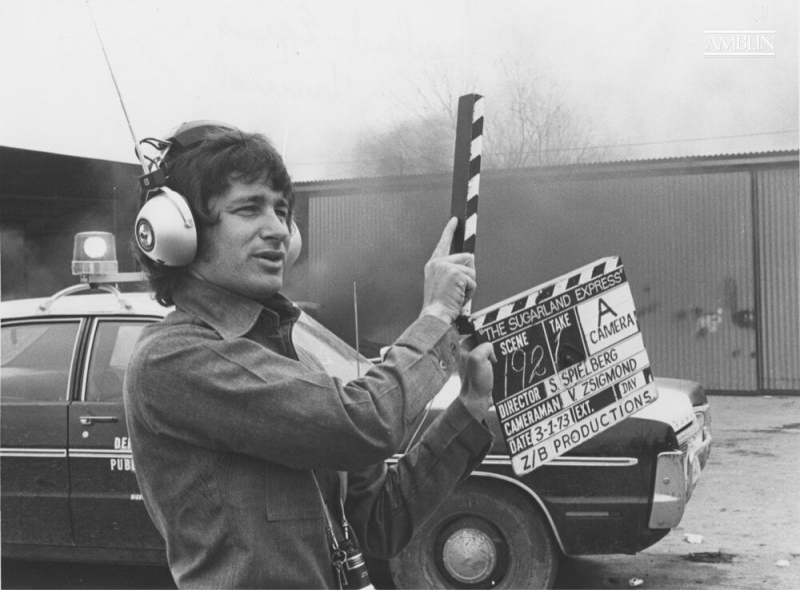
Photo: Amblin Partners 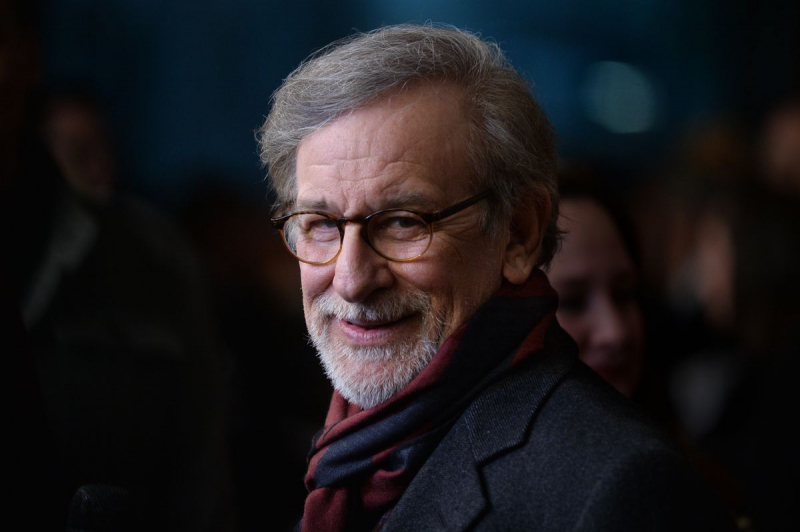
Photo: ELLE Man -
Let's start by clearing up all of Spielberg's accolades: he is the highest-grossing filmmaker in the world, with a total of $10 billion in worldwide box office receipts from his films, and that figure rises to $25 billion when you include the films he has produced. He was the youngest director to sign a long-term contract with a major studio, and he has three Oscars to his name (two for Best Director and won for Best Picture).
Jurassic Park also surpassed E.T. Spielberg's most lucrative movie, Jurassic Park 1993, which has earned $1.3 billion worldwide. The Jurassic Park series has about $5 billion in global box office receipts, and the fourth film, 2015's Jurassic World, made history by being the first movie to earn over $500 million globally in its opening weekend. The third-highest-grossing movie of the year was Jurassic World: the Fallen Kingdom, the most recent Jurassic Park movie.
Fans may still be unsure as to whether these films contributed to Spielberg's dominance in Hollywood. Actually, they do Spielberg does get that reputation thanks to his films, claims The-Numbers.com. His movies have made $10.5 billion overall or an average of $293 million per feature. His biggest hit, The only $1 billion-grossing Spielberg film was Jurassic Park in 1993.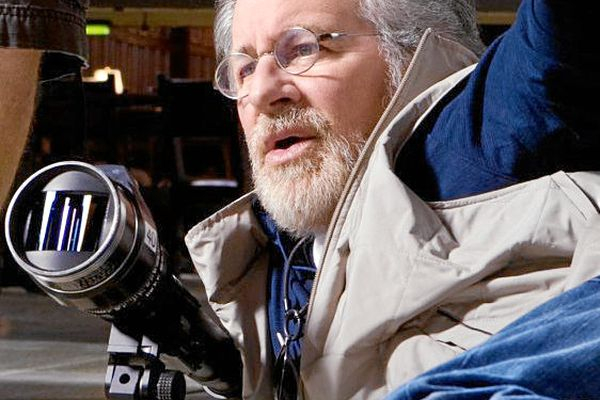
Photo: La Razón Video: Data Story -
Being an Orthodox Jew by birth, Steven's involvement in Schindler's List was a great box office success, grossing $322 million against a $22 million budget, but Spielberg never received a dime. Spielberg has stated that he is happy Schindler's List exists and that he believes viewers will take something positive away from it. Instead of making money, he directed the movie to tell a story and encourage tolerance.
Spielberg gave the Shoah Foundation, which preserves testimonials from Holocaust survivors, all of the money owed to him. Additionally, Spielberg still won't sign any memorabilia related to Schindler's List, preventing anyone from making money off of it. Before beginning work on Schindler's List, he intended to donate his money.
"As I told my mentor, Sid Sheinberg, I could not accept any payment from 'Schindler's List', even if it generated any revenue". In an interview, Spielberg said, It was blood money and ought to go back into the Jewish community. The Righteous Persons Foundation, which Spielberg assisted in founding, received funding from Spielberg. His objective is to have a larger impact on contemporary Jewish lives. The group provides funding for creative strategies to promote social justice advocacy.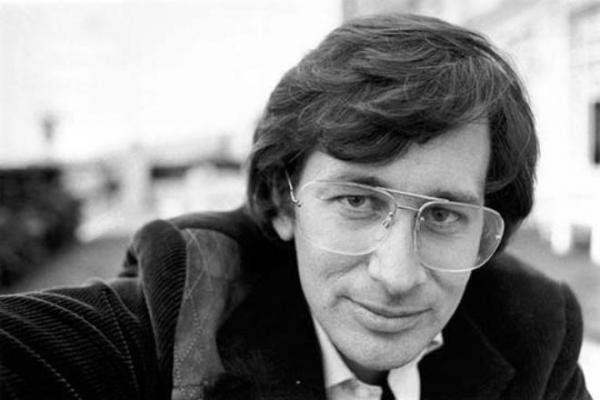
Photo: Báo Giáo dục thời đại 
Photo: Doanh Nhân Sài Gòn -
Although he may be most recognized for his work in films, Steven Spielberg has also made a number of contributions to the video game industry, which is a really interesting fact about Steven Spielberg. Spielberg, who enjoys playing video games, has contributed his voice to a number of titles over the years, including Clive Barker's Undying, Goosebumps: Attack of the Mutant, Dilbert's Desktop Games, and Skullmonkeys. He is also credited with creating the well-known first-person shooter series Medal of Honor, which was published by EA.
It's incredible to consider that all of this was made possible by a concept conceived by Steven Spielberg back in 1997. Even though many of the game developers working for him thought it was a horrible idea, Spielberg demanded that his newly formed development business, Dreamworks Interactive, work on a realistic military game based on World War II. They considered WWII to be outdated and a lousy backdrop for a game, so they wanted to take a more fantastical approach.
Spielberg got his way, and Electronic Arts' 1999 release of Medal of Honor was the result. It was a huge commercial and critical success (IGN gave it a 9.3). Infinity Ward was founded as a direct result of this in 2002. Call of Duty was the company's first game, an effort by Activision to compete with its bitter competitor EA in the military shooter sector. Many of the Call of Duty creators had previously worked on Medal of Honor, where they had perfected their craft in line with Spielberg's inspiration. Spielberg used a highly hands-on approach to game production, particularly in Medal of Honor, which became a personal project, according to a new book, Generation Xbox: How Video Games Invaded Hollywood.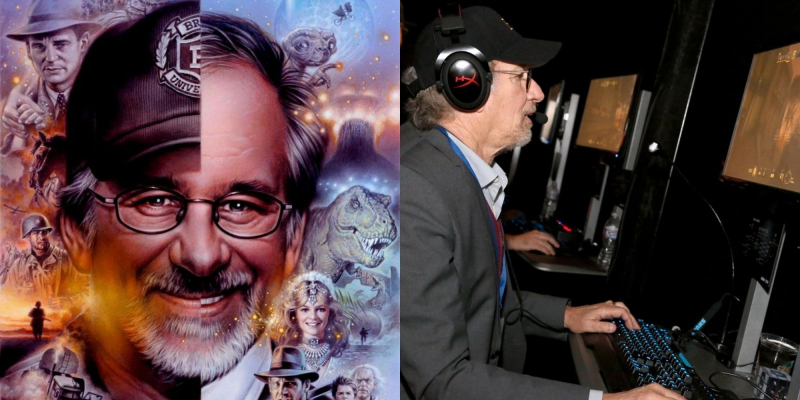
Photo: Jugo Mobile 
Photo: Happy Mag -
For his work as a director, Steven Spielberg has received three Academy Awards, including the Irving G. Thalberg Memorial Award, which is given to someone for their service to the film industry. He received two Best Director awards, one in 1994 for Schindler's List and the other in 1999 for Saving Private Ryan. Seven times he has been nominated for the prize; his first nomination was for Close Encounters of the Third Kind back in 1978.
Only one of Spielberg's movies has received the Best Picture Oscar. In 1994, Schindler's List was released. Ten of his films have received Best Picture nominations as of this writing, ET: The Extra-Terrestrial being the first to do so in 1983. His films have earned a staggering 131 times in total and 34 different prizes over the years.
At the time, Schindler's List received seven Academy Awards, including Best Picture and Best Director (Spielberg's first of two), and is regarded as the director's finest achievement. Jurassic Park was the highest-grossing film ever filmed at the time.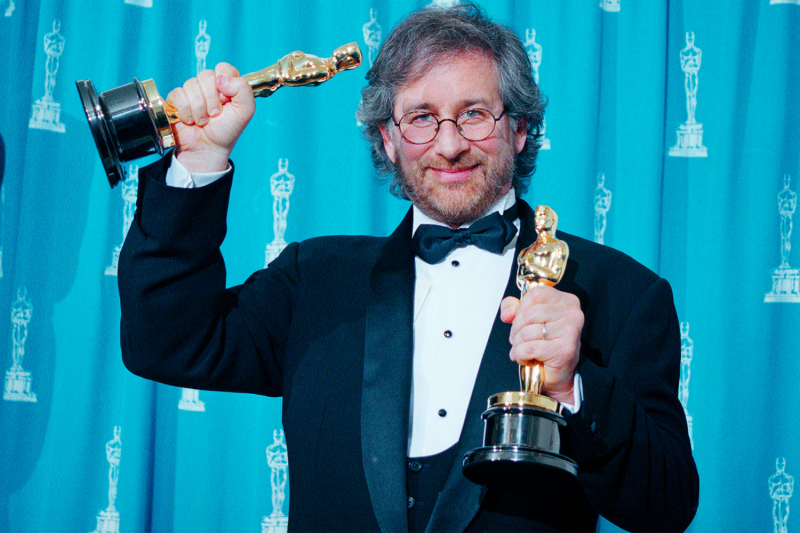
Photo: People 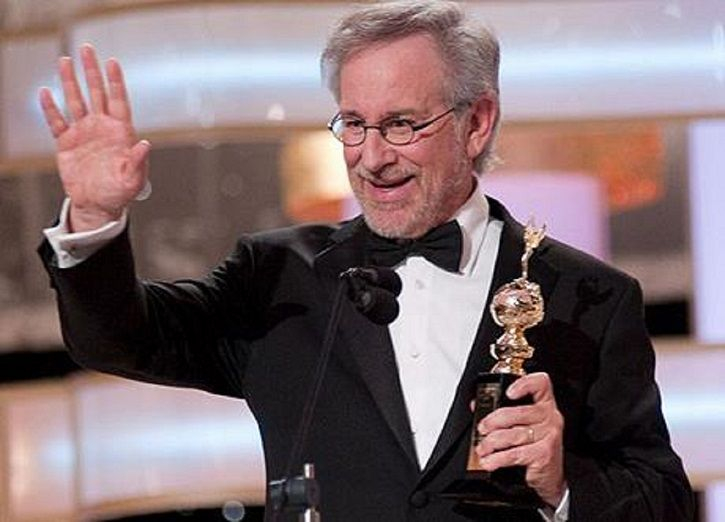
Photo: Indiatimes.com

























